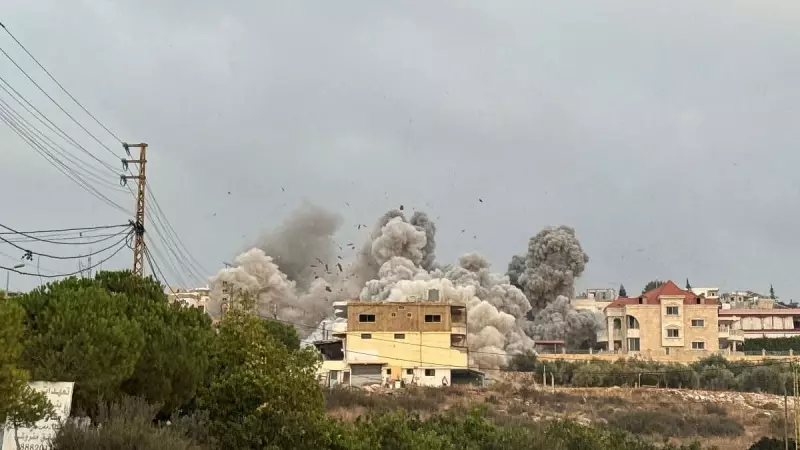
The Israeli military has confirmed conducting a targeted strike against a Hezbollah militant in Lebanon's capital city of Beirut, marking a significant escalation in the ongoing border conflict between the two forces.
November Escalation in Southern Lebanon
Throughout November 2025, Israel has significantly increased its military operations in southern Lebanon, pressing forward with a campaign of near-daily aerial attacks. The Israeli defense forces maintain that these operations are strategically designed to prevent what they describe as a military revival by Hezbollah in the volatile border region separating Lebanon and Israel.
Strategic Objectives Behind the Strikes
According to military analysts, the intensified airstrikes represent a proactive approach by Israel to disrupt Hezbollah's military infrastructure and capabilities along the border area. The Israeli government has repeatedly expressed concerns about the militant group's growing arsenal and its potential to launch attacks against Israeli territory from southern Lebanon positions.
The recent strike in Beirut specifically targeted what Israeli intelligence identified as a key Hezbollah operative involved in coordinating activities against Israeli interests. This operation demonstrates Israel's willingness to extend its military reach beyond the immediate border areas when dealing with what it perceives as significant threats to national security.
Regional Implications and Response
The escalation comes amid already heightened tensions throughout the Middle East region. Neighboring countries and international observers are closely monitoring the situation, concerned about the potential for broader regional conflict. The United Nations and various world powers have called for restraint from both sides, though diplomatic efforts have thus far failed to significantly de-escalate the situation.
Local residents in southern Lebanon have reported increased military activity throughout November, with daily airstrikes becoming a grim reality for communities living near the border. Humanitarian organizations have expressed growing concern about civilian casualties and the displacement of local populations caught in the crossfire of the escalating conflict.
As of November 23, 2025, the situation remains volatile, with no immediate signs of either side backing down from their respective positions. The international community continues to watch developments closely, hoping for a peaceful resolution to the escalating tensions between Israel and Hezbollah forces in Lebanon.





